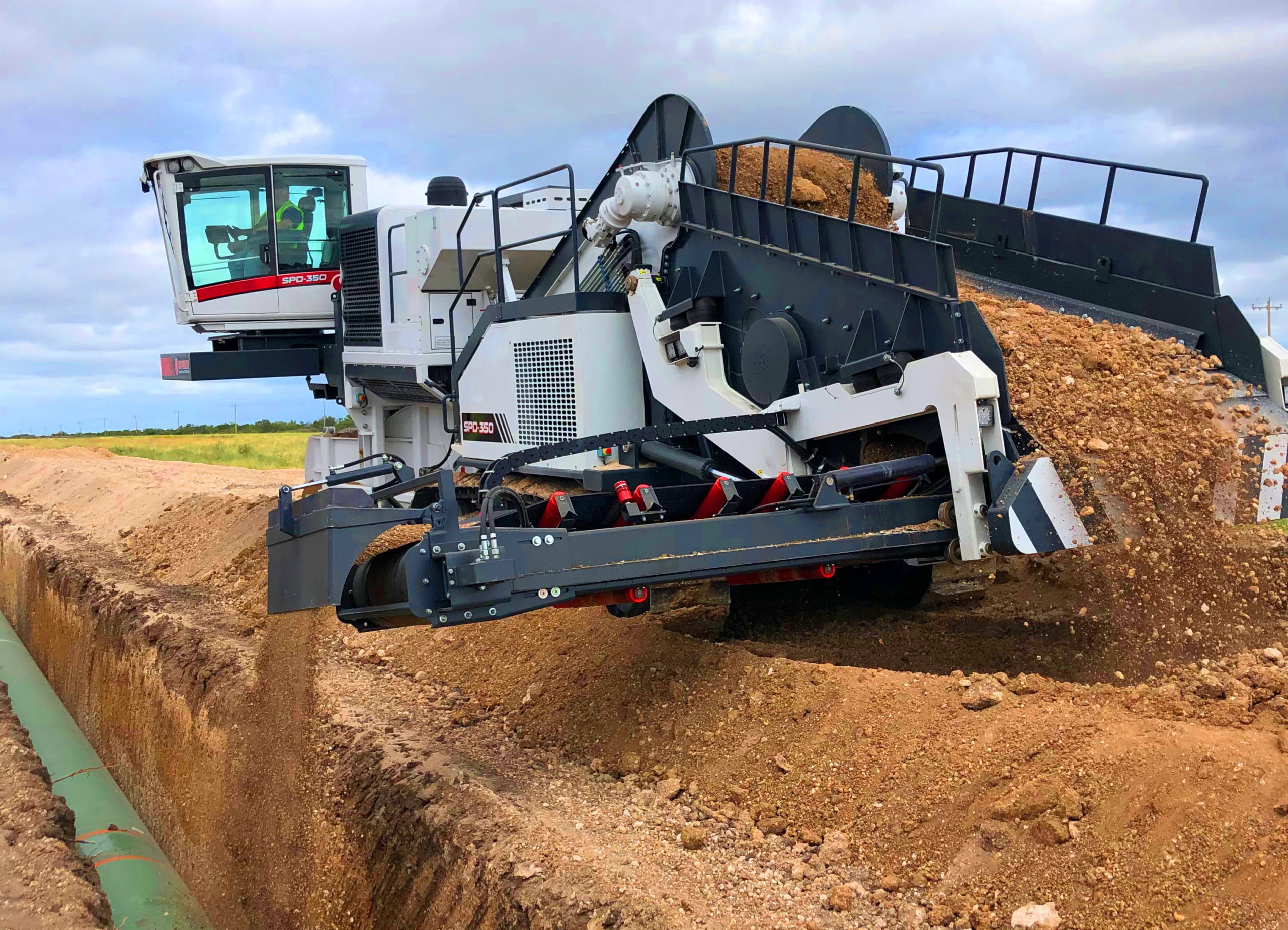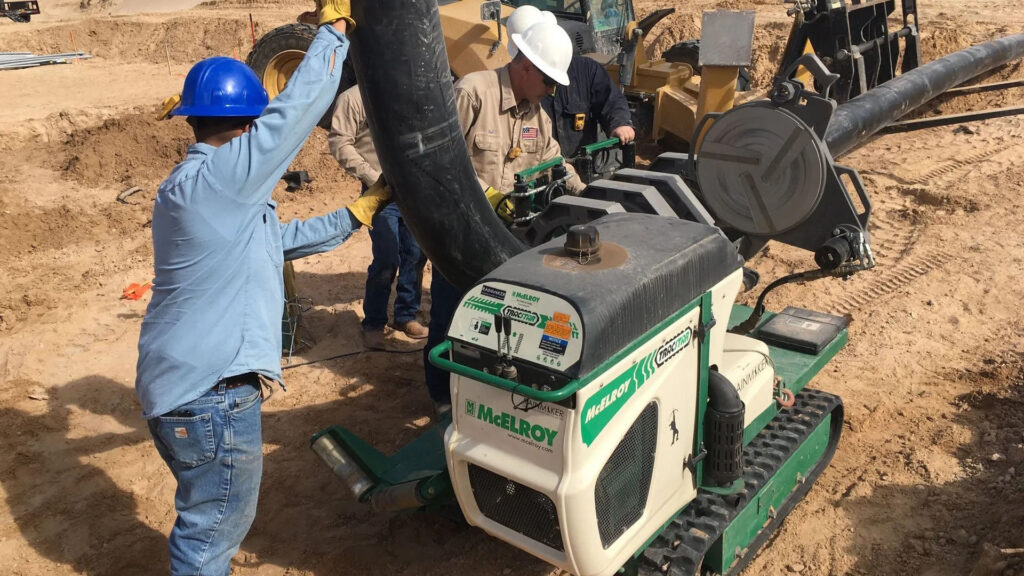Superior Rentals near me: 5 tips for choosing the right partner
Wiki Article
A Comprehensive Guide to the Various Types of Oil Field Equipment and Pipeline Equipment Available
The oil and gas sector relies greatly on specialized tools for reliable extraction and transport. Numerous kinds of equipment, from piercing rigs to storage tanks, play vital roles in this complex procedure. Each piece of equipment serves unique functions that add to total operational success. Recognizing these components is necessary for any person associated with the field. As the industry progresses, so as well do the modern technologies that support it. What developments are on the horizon?
Drilling Rigs: The Foundation of Oil Expedition
Drilling rigs work as the important equipment in the domain of oil expedition, enabling firms to accessibility hydrocarbon books buried deep below the Planet's surface area. These rigs come in different kinds, consisting of land rigs, offshore rigs, and mobile units, each designed to run in certain settings. Furnished with sophisticated technology, piercing rigs can penetrate geological developments with accuracy, making sure effective source extraction. The structural stability and operational abilities of these rigs are critical, as they should withstand severe problems and significant stress. The selection of an exploration gear affects the general task expense and timeline, making it a vital consideration for oil companies seeking to optimize their expedition efforts and optimize productivity in their operations.Pumps: Essential for Liquid Motion
In the oil extraction procedure, the function of pumps is considerable, assisting in the activity of liquids throughout numerous phases of production. Pumps are important for moving unrefined oil, water, and various other fluids from below ground storage tanks to the surface and afterwards through pipelines to refineries. They can be found in different kinds, consisting of centrifugal, positive variation, and submersible pumps, each serving particular functions based upon the liquid attributes and operational needs. Centrifugal pumps are typically utilized for their performance in high-flow applications, while positive displacement pumps master handling thick fluids. The choice of pump effects general effectiveness, functional safety and security, and maintenance prices. Correct option and upkeep of pumps are crucial for optimizing production and decreasing downtime in oil area procedures.Valves: Managing Circulation and Pressure

Shutoffs play an important duty in handling the circulation and pressure of liquids within oil areas and pipelines. Numerous kinds of shutoffs offer unique applications, each created to accomplish details features basic for efficient operation - Superior Oilfield Rentals oilfield. Recognizing the characteristics and uses these valves is essential for enhancing system performance and safety and security
Kinds of Valves
Vital elements in oil area operations, shutoffs play a crucial role in regulating the circulation and stress of fluids within pipes and equipment. Numerous sorts of valves are used to satisfy the diverse demands of oil and gas production. Typical types include gateway valves, which give a straight-line flow and minimal pressure decline; globe shutoffs, known for their throttling capacities; and sphere valves, recognized for their fast on/off control. Furthermore, check shutoffs prevent backflow, while butterfly shutoffs offer a light-weight service for regulating flow. Each valve kind is designed with particular materials and configurations to hold up against the extreme conditions frequently located in oil areas, making sure reliability and performance in operations. Recognizing these kinds is essential for reliable system management.Valve Applications and Features
While different kinds of valves offer distinct functions, their primary applications focus on managing circulation and pressure within oil and gas systems. Valves such as gateway, world, and sphere shutoffs control fluid motion, making certain peak efficiency and safety. Entrance shutoffs are generally made use of for on/off control, providing very little flow resistance. World valves, on the other hand, offer precise circulation guideline, making them ideal for throttling applications. Round valves are favored for their fast procedure and limited sealing capabilities. In addition, pressure relief valves are vital for protecting against system overpressure, guarding tools integrity. Overall, the suitable selection and application of shutoffs improve functional efficiency, making certain the trusted transport of oil and gas via pipelines and handling centers.Compressors: Enhancing Gas Transportation
Compressors play an important role in the reliable transport of gas, guaranteeing that it relocates efficiently with pipelines over fars away. These tools enhance the pressure of all-natural gas, permitting it to conquer friction and elevation changes within the site here pipeline system. Additionally, compressors assist in the harmonizing of supply and need, suiting variations in consumption and manufacturing prices. Various kinds of compressors are used in the industry, including centrifugal, reciprocating, and rotary screw compressors, each offering unique advantages based upon the operational needs. Routine upkeep of these compressors is vital to make best use of efficiency and lessen downtime, ultimately adding to a reliable gas transportation network. Their important function drain line plumbing emphasizes the importance of compressors in the general oil and gas framework.Storage Tanks: Safe and Efficient Fluid Management
Reliable transportation of natural gas depends on numerous supporting systems, one of which is the proper management of storage space containers. These containers play a necessary duty in safely having fluids, guaranteeing that functional effectiveness is preserved while decreasing ecological dangers. Created from resilient materials, they are designed to stand up to high stress and destructive components. Effectively sized and tactically situated, tank help with the smooth flow of gas and other fluids, stopping traffic jams in supply chains. Regular upkeep and tracking are necessary to find leaks or architectural concerns, promoting safety and conformity with regulative criteria. Eventually, the effective management of tank is important for the overall integrity and reliability of the oil and gas industry's fluid handling systems.
Pipeline Solutions: Infrastructure for Transport
Pipeline systems work as the foundation of the oil and gas market, promoting the reliable transportation of hydrocarbons over large distances. These systems include various elements, including pipes, shutoffs, pumps, and compressors, all carefully made to guarantee seamless flow. The materials used in pipeline building and construction, commonly steel or high-density polyethylene, are picked for longevity and resistance to rust. Pipeline networks can extend across land and water, attaching manufacturing websites to refineries and distribution. Additionally, progressed innovation makes it possible for real-time monitoring of flow prices and pressure levels, enhancing operational effectiveness. The strategic positioning of these pipes decreases environmental influence while making the most of source availability, therefore playing a necessary role in meeting energy demands worldwide.Safety And Security Equipment: Ensuring Employee and Environmental Management
The operation of pipeline systems, while important for energy transport, likewise presents substantial safety difficulties for employees and the environment. Safety and security devices plays a significant role in alleviating these dangers. Individual protective devices (PPE) such as safety helmets, gloves, and non-slip shoes safeguards employees from physical risks. In addition, gas detection systems keep track of for leakages, making certain click this site that dangerous substances do not position a risk to employees or the surrounding community. Emergency situation closure systems are crucial for quickly stopping procedures throughout a crisis, avoiding prospective catastrophes. Spill containment products, consisting of absorbents and barriers, are basic for minimizing environmental effect. In general, spending in comprehensive security equipment is essential for maintaining operational integrity and securing both employees and the atmosphere in the oil and gas market.
Regularly Asked Concerns
Exactly how Do I Select the Right Oil Field Equipment for My Task?
Choosing the ideal oil area equipment involves examining task specifications, spending plan restraints, and functional demands. Take into consideration elements such as tools dependability, compatibility with existing systems, and the distributor's track record to assure peak performance and security.What Are the Maintenance Requirements for Oil Field Equipment?
Maintenance requirements for oil field tools consist of routine examinations, lubrication, and prompt repair work. Operators must likewise stick to supplier standards, monitor performance metrics, and assurance compliance with safety laws to boost longevity and efficiency.
Just How Can I Guarantee Compliance With Environmental Laws?
To assure compliance with ecological guidelines, business should perform regular audits, implement finest practices, buy training, preserve proper paperwork, and remain updated on regulations (Superior Oilfield pipeline equipment rentals). Cooperation with ecological companies can likewise enhance adherence to guidelinesWhat Is the Typical Life Expectancy of Pipeline Equipment?
The typical life-span of pipeline equipment generally varies from 20 to 50 years, depending on aspects such as material top quality, ecological conditions, and maintenance practices. Normal assessments can significantly influence longevity and functional efficiency.Just how Do I Safely Deliver Oil Field Equipment to Remote Locations?
Transporting oil field devices to remote areas needs cautious preparation, including route assessment, securing permits, making use of proper cars, and making certain security methods are adhered to. Appropriate training and interaction among teams are essential for successful transportation.Report this wiki page